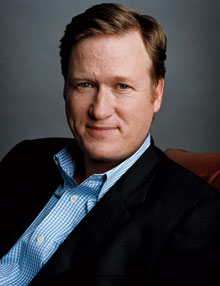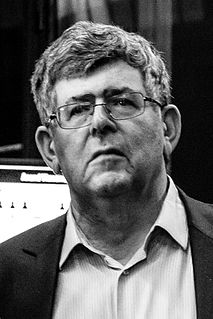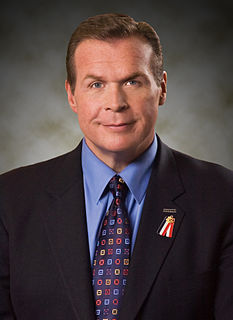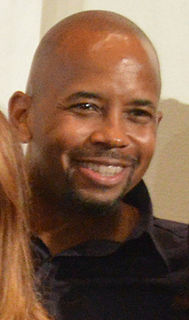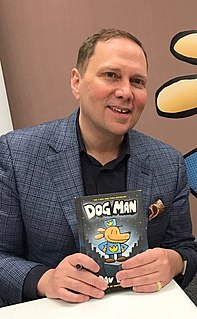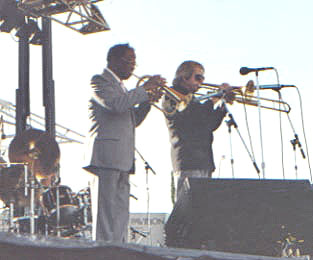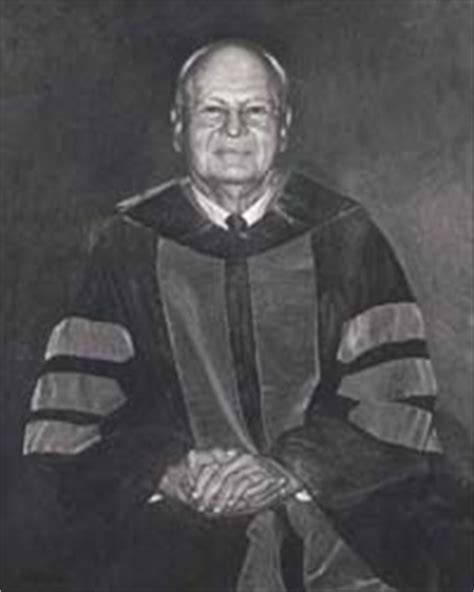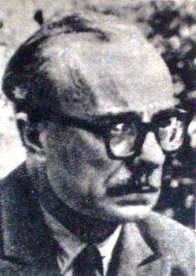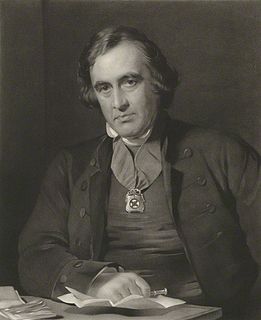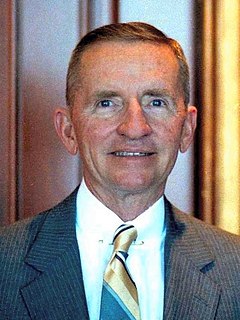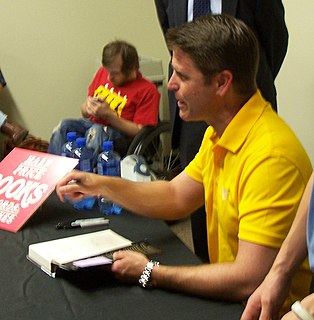Top 1200 Great Author Quotes & Sayings - Page 3
Explore popular Great Author quotes.
Last updated on April 15, 2025.
As a children's author, you get to advocate for reading and writing in general, in a way an adult author might not be able to. It's a really interesting dance we do to get literature into the hands of young people and to help them to become literate and become readers; we want them to grow up reading and continue to do so when they're adults.
Here's what I think: the best author photo ever taken is the author photo of you holding your extra-large engulfing rabbit and looking straight at the camera. I never hope to have one so good. The only way I guess it could be any more literary is if the rabbit were smoking a Gauloise and drinking a tiny cup of coffee.
Why do you keep reading a book? Usually to find out what happens. Why do you give up and stop reading it? There may be lots of reasons. But often the answer is you don't care what happens. So what makes the difference between caring and not caring? The author's cruelty. And the reader's sympathy...it takes a mean author to write a good story.
Times have changed since a certain author was executed for murdering his publisher. They say that when the author was on the scaffold he said good-bye to the minister and to the reporters, and then he saw some publishers sitting in the front row below, and to them he did not say good-bye. He said instead, "I'll see you again."
an Autobiography is the truest of all books; for while it inevitably consists mainly of extinctions of the truth, shirkings of the truth, partial revealments of the truth, with hardly an instance of plain straight truth, the remorseless truth is there, between the lines, where the author-cat is raking dust upon it which hides from the disinterested spectator neither it nor its smell... the result being that the reader knows the author in spite of his wily diligences.
The selection of a subject is to the author what choice of position is to the general,--once skilfully determined, the battle is already half won. Of a few writers it may be said that they are popular in despite of their subjects--but of a great many more it may be observed that they are popular because of them.
It is the shared experience - [although] you're the conduit of the sound, the recipient is also in some way the author of the work, because if they weren't the author of the work they wouldn't be able to recognise it as an experience, you could argue. The more distance you can put between yourself and having any kind of objective the more likely it is to appear.
When you want to put something into your part that is not in the play, you must ask the author-or some other author-to lead up to the interpolation for you. Never forget that the effect of a line may depend not on its delivery, but on something said earlier in the play, either by somebody else or by yourself, and that if you change it, it may be necessary to change the whole first act as well.
No one really knows the value of book tours. Whether or not they're good ideas, or if they improve book sales. I happen to think the author is the last person you'd want to talk to about a book. They hate it by that point; they've already moved on to a new lover. Besides, the author never knows what the book is about anyway.
One can say that the author is an ideological product, since we represent him as the opposite of his historically real function. (When a historically given function is represented in a figure that inverts it, one has an ideological production.) The author is therefore the ideological figure by which one marks the manner in which we fear the proliferation of meaning.
Authors have a greater right than any copyright, though it is generally unacknowledged or disregarded. They have a right to the reader's civility. There are favorable hours for reading a book, as for writing it, and to these the author has a claim. Yet many people think that when they buy a book they buy with it the right to abuse the author.
Not only do you need great lyrics, a great message, a great story, great vocals, great chords... you also need great instrumentation, great editing, great sonics, great mixing, and great mastering. It all comes together to make something truly great, and I think each element combines together to create a powerful impact on the consumer.
Regarding fiction, our concern shouldn't be the author's origin (and of course I am forgetting the sales people right here), because that is actually merely a simplified, almost insulting judgment of the book by its cover - or rather by the name and origin of its author - an act of discrimination if we want to say it in a more provoking way, but at the least an act of ignorance and false empathy.
I don't think that children, if left to themselves, feel that there is an author behind a book, a somebody who wrote it. Grown-ups have fostered this quotient of identity, particularly teachers. Write a letter to your favorite author and so forth. When I was a child I never realized that there were authors behind books. Books were there as living things, with identities of their own.
It's difficult not to color our perception of author's product with his personality. There are so many examples of this. What do we think of Ezra Pound - clearly a great poet and clearly kind of an asshole? You can say the same thing about Louis-Ferdinand Céline, who clearly was a Nazi sympathizer, and yet one of the great writers of the 20th century. It is tough, but there are enough examples around where we have to somehow find a way of separating the work from the artist and seeing what there is to see in the work, while also condemning the thoughts we see in the man.
A tactic used by authors of virtually every single book I've ever read that propounds a conspiracy theory is to attack an agency as being part of a conspiracy in the Kennedy assassination, but when this same agency comes up with something favorable to the author's position, the author will cite that same agency as credible support for his argument.
I think overtly political novels - those that never transcend or contest their author's conscious intentions and prejudices - are problematic. This is not just true of the innumerable unread books in the socialist realist tradition, but also of novels that carry the burden of conservative ideologies, like Guerrillas, Naipaul's worst book, where the author's disgust for a certain kind of black activist and white liberal is overpowering.
It has been the error of the schools to teach astronomy, and all the other sciences, and subjects of natural philosophy, as accomplishments only; whereas they should be taught theologically, or with reference to the Being who is the author of them: for all the principles of science are of divine origin. Man cannot make, or invent, or contrive principles: he can only discover them; and he ought to look through the discovery to the Author.
There was an author who titled his books by days of the weeks and another one that used colors. Then there was Edward Gorey who wrote the book The Gashlycrumb Tinies, about the untimely death of 26 Victorian children, each representing a letter of the alphabet. I thought what a great way to link the titles.
Just as the office worker dreams of murdering his hated boss and so is saved from really murdering him, so it is with the author; with his great dreams he helps his readers to survive, to avoid their worst intentions. And society, without realizing it respects and even exalts him, albeit with a kind of jealousy, fear and even repulsion, since few people want to discover the horrors that lurk in the depths of their souls. This is the highest mission of great literature, and there is no other.
"The best is oftentimes the enemy of the good;" and without claiming for an instant that title of good for my book, I do not doubt that many a good book has remained unwritten, or, perhaps, being written, has remained unpublished, because there floated before the mind's eye of the author, or possible author, the ideal of a better or a best, which has put him out of all conceit with his good.
I spent many years writing and directing in radio drama, so I am comfortable with an audience or a microphone, but I do worry about the blurring of an author's public persona with the work itself. A good 'performer' can make a mediocre book sound strong, and a shy author can leave listeners missing the excellence of his or her writing.
I can tell that I shaped the book very deliberately, after a great deal of thought, and that I insisted this piece function as a prologue, but I find the word "intention," confusing ("trust the art," as D.H. Lawrence said, "not the artist"). These speculations are perhaps better responded to by text and reader, rather than author.
I know publishing now more as an author than with occasional peaks inside those elite offices than as an industry insider. It was difficult publishing a novel the first time around, while working behind the scenes, knowing all that has to happen to make a book a success and to still make the leap as an author.
My #1 job as a thriller author is to give readers the best white-knuckle thrill ride I am capable of. I am first and foremost in the entertainment business. If that suspenseful ride is also terrifying because it hits really close to home, then I am once again doing what I am supposed to do as a thriller author.
In all great works of fiction, regardless of the grim reality they present, there is an affirmation of life against the transience of that life, an essential defiance. This affirmation lies in the way the author takes control of reality by retelling it in his own way, thus creating a new world. Every great work of art, I would declare pompously, is a celebration, an act of insubordination against the betrayals, horrors and infidelities of life. The perfection and beauty of form rebels against the ugliness and shabbiness of the subject matter.
The twentieth century saw a professionalization of fiction writing, particularly in its second half and particularly in the Anglo-Saxon world - not so much mainland Europe, for example. This professionalization is a tragedy. Hand in hand with this - and I have no idea what the causal relations are - there has been a rise in the idea of The Author, so that today one often has the impression that what's selling the book is not the book but the author.







